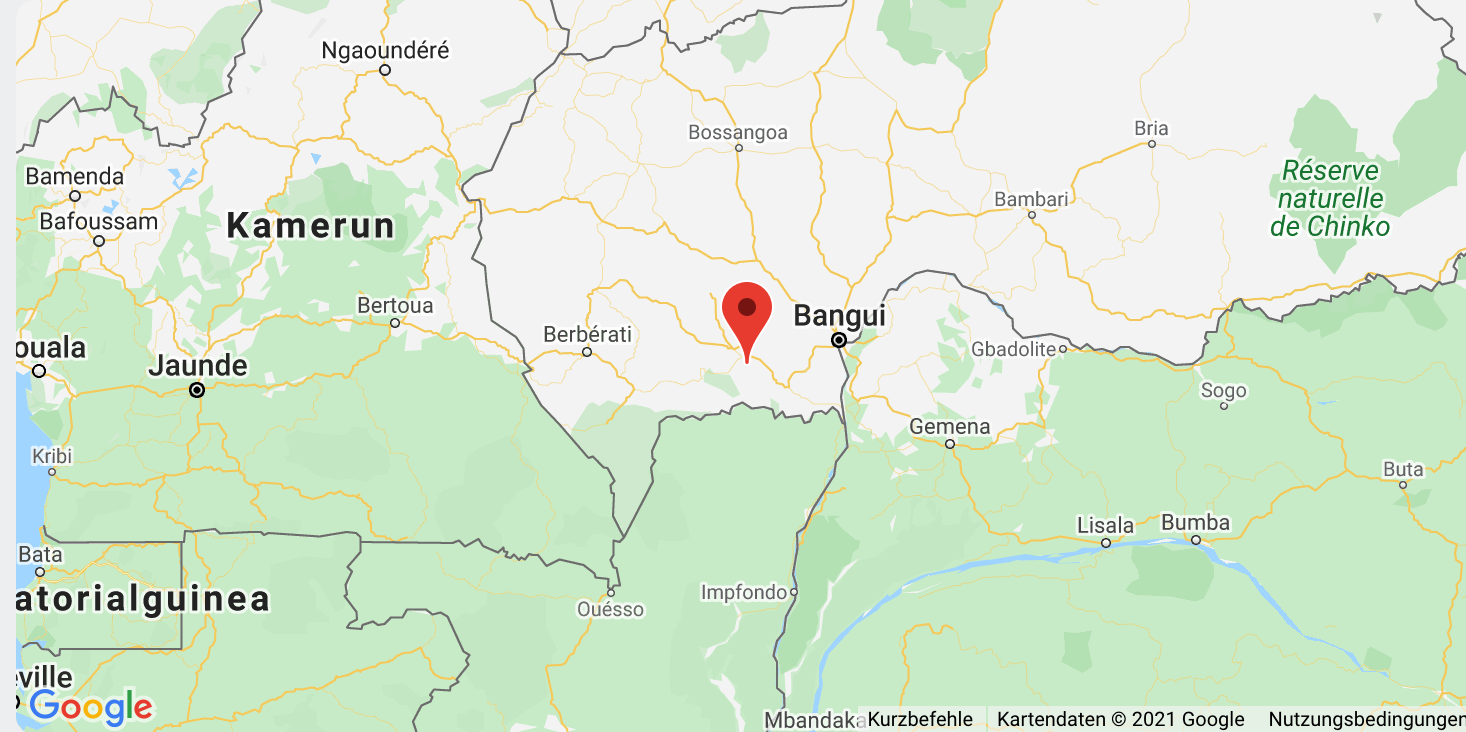Background
Since gaining independence from France in 1960, the Central African Republic has been afflicted by near-constant political instability. The military-political crisis of recent years has seen a drastic deterioration in the living conditions of the general population, and since 2013 the health system has been in a state of collapse. The majority of the 4.6 million inhabitants of the Central African Republic depend on humanitarian aid, and more than a quarter are currently displaced or living as refugees. The maternal mortality rate as well as that of children under the age of five are among the highest in the world. In addition, access to education, drinking water and sanitation is poor, which in turn negatively impacts the health of the general population.
In this catastrophic situation, the indigenous Aka people are particularly hard hit. The Aka are an ethnic group that live in the tropical rainforest of the Congo Basin as semi-nomadic hunters and gatherers. Excessive use of the rainforest has severely restricted their habitat, forcing them to change their ancestral way of life. With no source of income of their own, the Aka are dependent on bartering and indentured work on the fields of the dominant Bantu population in order to secure their basic needs. And as an ethnic minority, the Aka suffer from extreme discrimination by other groups. In particular, pregnant Aka women, infants and people with disabilities are exposed to increased health hazards as a result of restricted access to health services.
The Project
The emphasis of this project is on improving the health of the nearly 20,000 Aka in the Mbaiki health district of Lobaye prefecture. As well as the Aka, other parts of the population such as the Bantu also benefit from the project, as they live in the region and can make use of the improved healthcare system. Throughout, special attention is being given to people with disabilities, where the aim is to provide them with long-term access to health services. The focus is also on the early detection and treatment of neglected tropical diseases (NTDs) and improving the health of pregnant women and infants. Alongside, the general population – in particular the Aka and people with disabilities – are encouraged to actively participate in the administration of their local health facilities. FAIRMED works closely with the local health authorities and supports them in the implementation of measures that reinforce the healthcare system. FAIRMED has concluded a framework cooperation agreement with the Ministry of Health, meaning that the project is legitimised at the highest level.
Objectives and Activities
The main goal of the project is to provide the population of the health district of Mbaiki with access to quality healthcare. To this end, the project is pursuing three specific aims that are being realised, among others, through the following activities:
Utilisation of local health services by the people in the project area
To improve the quality of health services, the staff at health facilities are trained on a variety of topics. In addition, employees at the health district level are supported in the planning of activities.
All childbirth costs for Aka women are covered by a voucher system. Among other benefits, they can take make use of free pre- and post-natal examinations and can give birth to their child in a specially equipped health facility, assisted by properly trained staff.
Emergency patients from the Aka community are transported from their homes to the health facilities in M’baiki or Bangui, where they can receive appropriate treatment.
The population and health workers are empowered in the early detection and treatment of neglected tropical diseases
Health workers and voluntary health workers receive training and advanced instruction in the early detection and treatment of neglected tropical diseases (leprosy, Buruli ulcer and yaws).
The health authorities are supported in the development and implementation of a national action plan against neglected tropical diseases. They also receive support in the distribution and storage of medicines, the organisation of early detection campaigns and data management.
All of the various ethnic groups and minorities are actively incorporated in healthcare structures
Efforts are made to include Aka people and those with disabilities in management committees. In addition, the skills and knowledge of these two groups are reinforced through the formation of associations and the implementation of corresponding training.
Income-generating activities are promoted through training activities and guidance for the Aka people and disabled associations in poultry breeding and livestock cultivation.
Sustainability and Monitoring
All FAIRMED projects are implemented in cooperation with the local official agencies and with the inclusion of the population on the ground. The regional FAIRMED country offices are staffed exclusively by local employees. With this approach, and aided by consistent monitoring, problems can be identified in a timely manner, causes can be analysed, and methods and objectives can be adapted where necessary. The direct integration of health ministers and partner organisations also ensures that projects can be transferred at a later point and continued without the support of FAIRMED.
Beneficiaries and Budget
The emphasis of this project is on improving the health of the approximately 20,000 Aka people in the Mbaiki Health District of Lobaye prefecture. In addition to the Aka, the general population also benefits from the project in the form of an improved health system in their region. The total budget for the project duration 2017 to 2020 amounts to CHF 1,303,504.
No one should suffer or die from a curable disease
Minyem Jacques Christian • Country Coordinator Central African Republic
Support FAIRMED